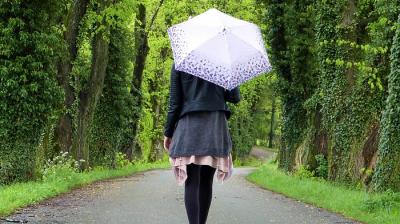Looking for a way to release some stress? Stop popping pills and let nature work its magic. According to a recent research, taking at least twenty minutes out of your day to stroll or sit in a place that makes you feel in contact with nature will significantly lower your stress hormone levels.
“We know that spending time in nature reduces stress, but until now it was unclear how much is enough, how often to do it, or even what kind of nature experience will benefit us. Our study shows that for the greatest payoff, in terms of efficiently lowering levels of the stress hormone cortisol, you should spend 20 to 30 minutes sitting or walking in a place that provides you with a sense of nature,” said MaryCarol Hunter, lead author of the research published in the Journal of Frontiers in Psychology.
These regular pills of nature could be a low-cost solution to reduce the negative health impacts stemming from growing urbanisation and indoor lifestyles dominated by screen viewing.
To assist healthcare practitioners looking for evidence-based guidelines on what exactly to dispense, Hunter and her colleagues designed an experiment that would give a realistic estimate of an effective dose.
Over an 8-week period, participants were asked to take a nature pill with duration of 10 minutes or more for at least 3 times a week. Levels of cortisol, a stress hormone, were measured from saliva samples taken before and after a nature pill, once every two weeks.
“Participants were free to choose the time of day, duration, and the place of their nature experience, which was defined as anywhere outside that in the opinion of the participant, made them feel like they’ve interacted with nature.
There were a few constraints to minimise factors known to influence stress: take the nature pill in daylight, no aerobic exercise, and avoid the use of social media, internet, phone calls, conversations and reading,” Hunter explains.
According to her, building personal flexibility into the experiment, allowed us to identify the optimal duration of a nature pill, no matter when or where it is taken, and under the normal circumstances of modern life, with its unpredictability and hectic scheduling.
“We accommodated day to day differences in a participant’s stress status by collecting four snapshots of cortisol change due to a nature pill. It also allowed us to identify and account for the impact of the ongoing, natural drop in cortisol level as the day goes on, making the estimate of effective duration more reliable,” said Hunter.
The data revealed that just a twenty-minute nature experience was enough to significantly reduce cortisol levels. But if you spent a little more time immersed in a nature experience, 20 to 30 minutes sitting or walking, cortisol levels dropped at their greatest rate. After that, additional de-stressing benefits continue to add up but at a slower rate.
“Healthcare practitioners can use our results as an evidence-based rule of thumb on what to put in a nature-pill prescription. It provides the first estimates of how nature experiences impact stress levels in the context of normal daily life. It breaks new ground by addressing some of the complexities of measuring an effective nature does,” said Hunter.








